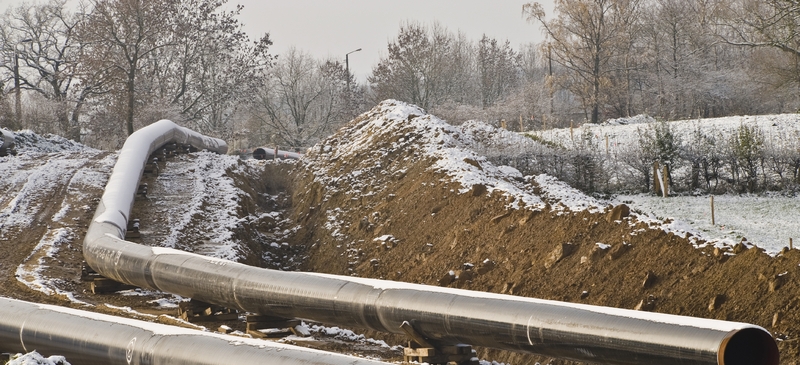
Reciprocity will not secure Europe’s energy
As Moscow growls angrily at the West, Europeans are becoming more worried about their energy supplies. Will Russia be willing to sell us the gas we need to heat our houses and power our industries? Will it be able to? In 2006, Moscow temporarily turned off the tap to Ukraine. Could Poland be next? Or Italy?
Of course, Europe’s dependence is not one-sided. More than a third of EU gas imports come from Russia. For Russia, these sales are a major source of foreign exchange. All big Russian gas pipelines go to the EU. It will take years to build the pipes and liquid gas terminals to ship Russian gas eastwards, to China or the US.
Yet, Europe is worried, and rightly so. The presidential succession in 2008 could trigger a fierce wrangle for power and property. The Kremlin controls Gazprom, the gas monopoly. Or is it the other way round? In any case, collateral damage to the energy industry cannot be ruled out. Political uncertainty may be one reason why there has not been much investment in new gas fields over the last decade; the Kremlin’s tightening grip on the energy sector may be another. Rather than welcoming foreign cash and technology, Gazprom has pushed out western companies from giant projects such as Sakhalin II and Kovytka. Gazprom’s output has been flat for years, while domestic demand is rising swiftly. Energy experts say that Russian underinvestment could open up a ‘gas gap’ in Europe as early as 2010.
The EU has come up with a possible solution: reciprocity. European companies get investment opportunities in Russian energy. Gazprom gets access to lucrative distribution and sales businesses in the EU. Reciprocity sounds good; it has connotations of mutual advantage and winwin co-operation. Angela Merkel, José Manuel Barroso and Vladimir Putin have all proclaimed that it is the way forward for EU-Russia energy relations.
The trouble is that Europeans and Russians mean completely different things when they talk about reciprocity. The EU wants a mutually agreed legal framework to facilitate two-way investment. The Kremlin wants assets swaps. Europe wants openness, Russia wants control. For now, reciprocity is working in Russia’s favour. Gazprom already has investments in 16, perhaps even 20, of the 27 EU countries. It owns distribution networks in some of the new member-states; it builds gas storage facilities in others; and since last year it has struck big bilateral deals with German, French and Italian companies that give it direct access to gas users in the EU. Meanwhile, the EU has made no progress at all in persuading Russia to ratify the ‘Energy charter treaty’, which would oblige Russia to open up its energy sector a bit.
Some Europeans now say that Gazprom should be banned from investing in the EU unless and until Russia allows more European investment. However, the EU cannot adopt the Russian approach without compromising its own free-market principles. EU rules strictly forbid discrimination against an investor on the basis of nationality. It would also be hard to pull off in practice. Who would tell European energy companies which assets they could and could not hand over to Gazprom? Their governments? The European Commission?
The only way forward is to make sure Gazprom plays by European rules. Given its track record of shoddy management, asset grabbing and political meddling, the Europeans may be forgiven for asking whether it understands and respects market principles. Thankfully, the EU has the instruments to enforce competition, transparency and fair play. In March, EU leaders asked the competition commissioner, Neelie Kroes, to investigate whether Gazprom’s growing role could impede EU energy market liberalisation. When President Putin complained about this, Chancellor Merkel is said to have replied that Gazprom should consider it “an honour to be treated like Microsoft”.
If the Europeans are worried about Gazprom’s role, they need to back the Commission’s efforts to speed up liberalisation of their own gas market. In the autumn, the Commission will draft a new law on ‘unbundling’, to prevent a single company from producing, transporting and selling energy. So far, Germany and France have opposed unbundling. They should think again. By giving competing energy companies access to Europe’s pipeline networks, unbundling would all but rule out market abuse by big, vertically integrated companies – not only EU ones such as Gaz de France and E.On-Ruhrgas, but also Gazprom. Moreover, since more competition would mean lower profits in downstream markets, Gazprom could lose interest in EU assets and instead invest its money at home, where it is most needed.
